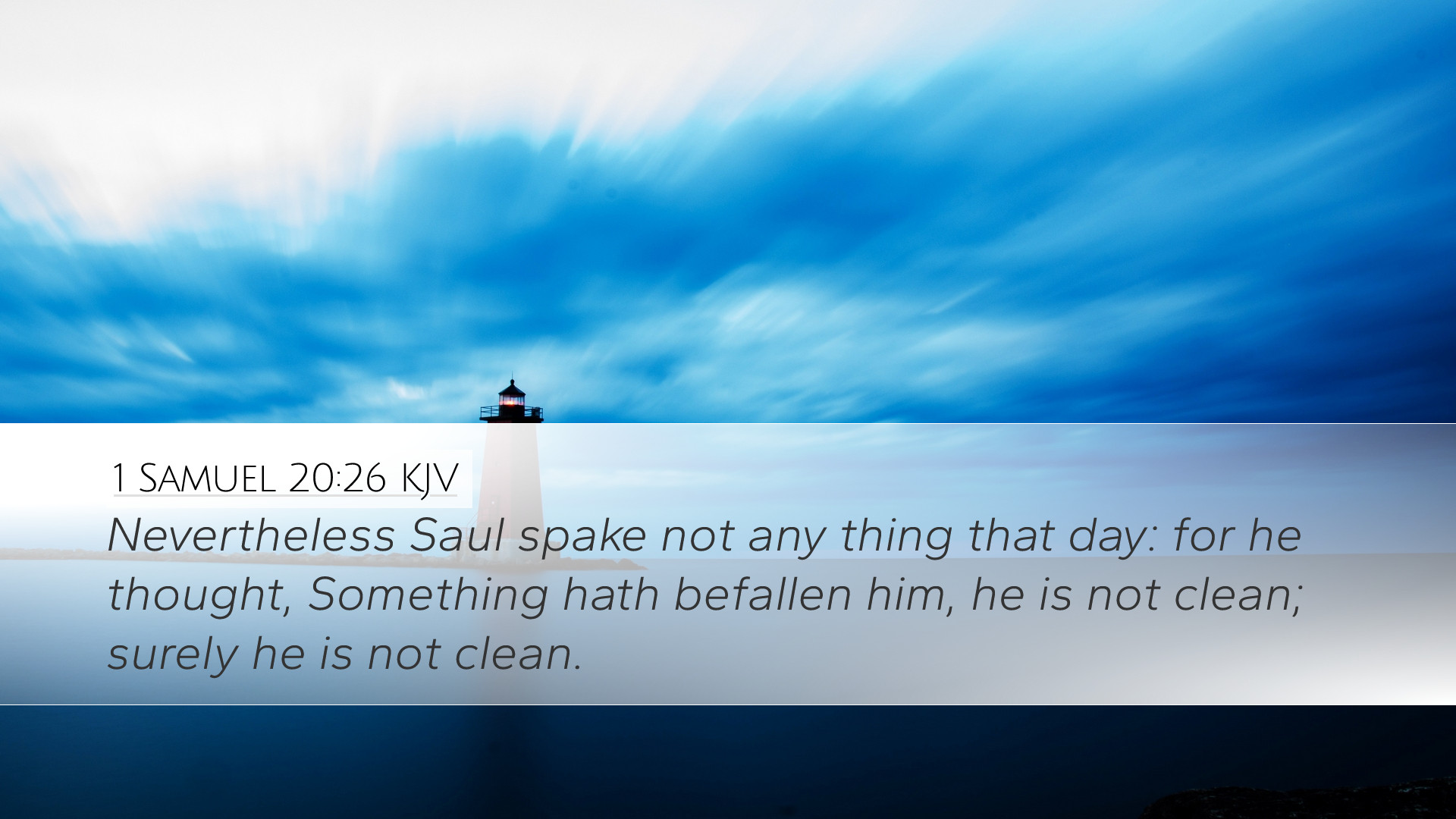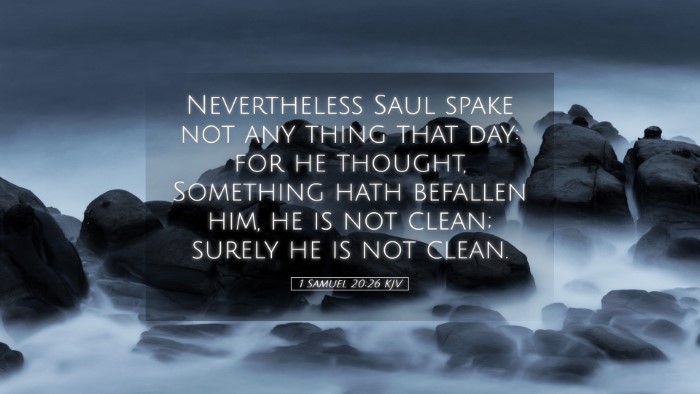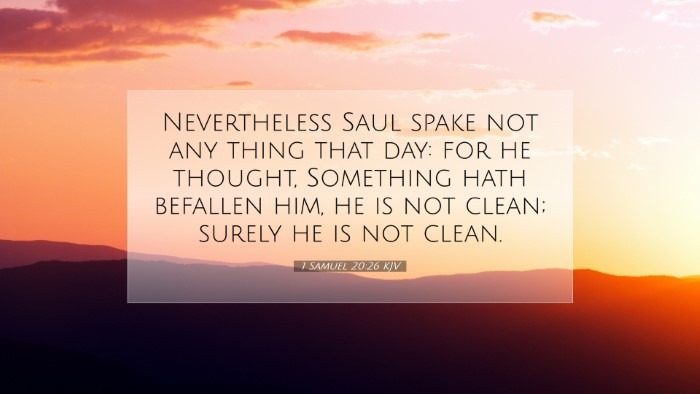Commentary on 1 Samuel 20:26
Verse Context: 1 Samuel 20:26 records a significant moment in the complex friendship between David and Jonathan, amid the escalating tension between David and King Saul. The verse reads:
"Nevertheless, Saul said nothing that day; for he thought, ‘Something has happened to David; he is not clean, surely he is not clean.’"
1. Historical Background
The historical backdrop is crucial to understanding this passage. At this point in the narrative, Saul’s jealousy and increasingly erratic behavior towards David culminate in a life-threatening rivalry. Jonathan, Saul's son, has pledged loyalty to David, creating tension with his father.
2. Textual Analysis
In considering the textual implications of 1 Samuel 20:26, we observe Saul’s internal struggle. His conclusion about David's absence from the table—a significant event during the New Moon feast—reveals both his awareness of David’s situation and his misguided perceptions.
-
Saul's Silence: Saul's choice to say nothing on this day, according to Matthew Henry, illustrates the king’s contemplative yet deceptive nature. It signifies a moment where his thoughts are conflicted; he is aware of the implications of David’s absence but still clings to his paranoia.
-
Perception of Purity: The verse mentions Saul's notion that David is 'not clean.' This reflects the ceremonial laws of Israel, where someone deemed unclean could not partake in communal meals or worship, indicating Saul’s attempt to rationalize David’s absence through a spiritual lens rather than acknowledging his own hostility (Barnes).
3. Theological Reflections
Theologically, this verse emphasizes the theme of Divine Providence. Despite Saul’s scheming, God’s plan for David—as the future king—is unfaltering. Adam Clarke notes that Saul’s thoughts betray his recognition of David’s anointing and God’s purpose, even as he seeks to exterminate the perceived threat.
4. The Dynamic of Friendship
Additionally, this passage sheds light on the profound bond between Jonathan and David. Jonathan's awareness of the political and familial tensions illustrates the depth of his commitment to David. Their friendship serves as a model for loyalty and integrity amidst divine calling and personal conflict.
5. Personal Application
For pastors and theologians, this verse encourages reflection on the complexities of familial loyalty versus divine allegiance. It raises essential questions:
-
How do we handle conflicts between loyalty to family and fidelity to God's calling?
-
In what ways do our perceptions cloud our understanding of others’ situations?
-
What can we learn from Jonathan about standing firm in our principles without abandoning our relationships?
6. Conclusion
1 Samuel 20:26 encapsulates a critical moment of tension and ambiguity in the life of David. Through the lens of multiple commentaries, this verse not only highlights the fragility of human relationships amidst strife but also emphasizes the overarching sovereignty of God’s plan. As believers, we are invited to trust in God's guidance, lean on the strength of our friendships, and navigate life's complexities with wisdom stemming from our faith.


